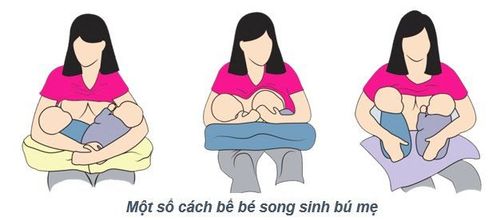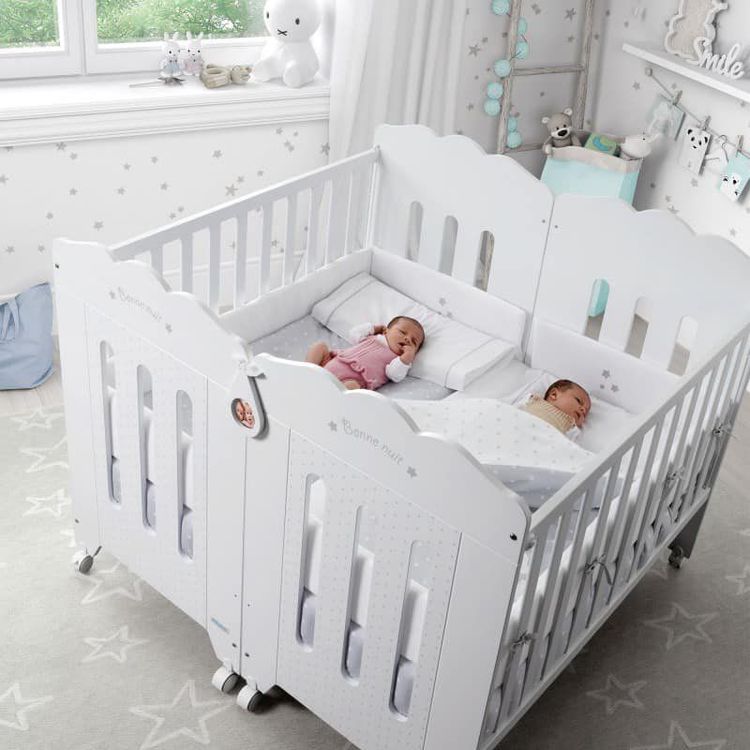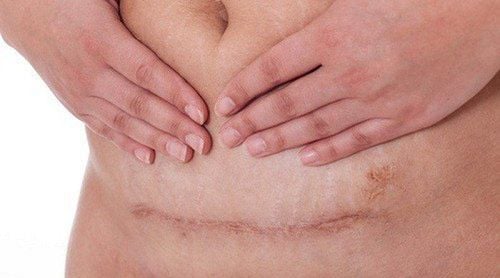This is an automatically translated article.
Taking care of a newborn is difficult, especially when the stress multiplies when a mother has to take care of two or more newborn babies. Mothers have to arrange the schedule of not only 1 but 2 or more babies. In the following article, we will provide useful information to help mothers feel confident and secure in taking care of twins most effectively.1. Taking care of twins or more
1.1. How to Take Care of Twins Easier Parents' anxiety in taking care of twins is completely understandable because taking care of one baby is hard enough for many parents and the prospect having 1 or more babies can be a real surprise. Remember that no parent gets all the support they need, but it takes time to learn, enlist the help and support of the family both financially and emotionally. .With twins, the problem is doubled or even tripled. Mothers will need more support from their husbands, so to avoid unnecessary stress during childcare, plan ahead and seek extra help after giving birth. Be sure to have some family members or friends available to help when needed. And just having to focus on babies for at least the first 3 months can help moms feel a lot less stressed about the whole thing.
1.2. Breastfeeding with twins or more Of course, breastfeeding still needs to be done even if the mother has two or more babies. In terms of milk supply, mothers do not need to worry too much because having twins or triplets will stimulate the body to produce more breast milk. However, finding an effective method for feeding 2 or 3 babies at the same time will require a lot of patience. The trick is to find a comfortable and suitable position to help the mother breastfeed properly.
Many mothers even breastfed their babies until they were 2 years old. They used a pillow for one of the children to lie on and let the other child rest his or her head on their arm. Or some other mothers have pumped milk into two bottles so that the baby can feed from the bottles on their own.
1.3. How long should maternity leave be? The answer is to take maternity leave as much as possible. However, the deciding factor will still depend on what is best for mothers and their families. It is the health of the babies, how the mothers feel physically and mentally, or their economic condition and working environment.
For maternity leave, based on Clause 1, Article 34 of the Law on Social Insurance 2014 stipulating the maternity leave period for female employees giving birth, they are entitled to take leave and enjoy the maternity benefits before and 6 months after giving birth. In case female employees have twins or more, from the second child onwards, for each child, the mother is entitled to an extra month of leave. The maximum period of maternity leave before giving birth shall not exceed 2 months.
For mothers who feel that they need more time off due to their own health as well as those of their children, please discuss this with the company's human resources department or superiors about applying for an extended leave. or arrange part-time employment. If mothers can afford and want to take care of their children more thoughtfully, mothers can completely think about quitting their jobs, as long as it doesn't affect the family too much.

Cho cả 2 hoặc 3 trẻ bú cùng lúc sẽ đòi hỏi sự kiên nhẫn rất lớn
2. 7 things you didn't know about taking care of twins
In the United States, for every 100 pregnant women, there will be 2-3 twins or triplets. And according to many sources, the number of twins and triplets in this country is still increasing. However, even the most experienced mothers with newborn babies cannot imagine what will happen when they leave the hospital and return home.While it is true that twins or triplets can bring more joy to every family, it seems that raising twins also requires more, at least the initial stages of the process this. And the key to helping relieve the pressure of caring for two or three babies is to plan ahead for things like this.
2.1. No advance planning means pressure Sometimes taking care of just one newborn is a burden enough for some parents, but when there are two or three babies, the challenges can be overwhelming. This multiplies and it requires mothers to plan ahead and keep everything on track. From feeding, sleeping, playing. Gradually mothers will adapt to such a life
2.2. Mothers can breastfeed both babies at the same time This is possible, if mothers breastfeed, they can let both babies feed at the same time with one breast each. These things require a great deal of coordination and patience, and many mothers say they don't feel like it at all.
Some moms report that breastfeeding twins feels like balancing both heads. One solution is for one baby to suckle directly from the mother's breast and the other to be pumped out of a bottle. The entire breastfeeding with twins can take a mother around 45 minutes or even an hour.
2.3. Baby should be kept in a crib for the first time Newborn twins can certainly stay together in a crib for a while. This process can even last until they transition to bed. Even so, there are things that must be accompanied by a pair of infants such as two chairs, two strollers or two toys....

Những cặp song sinh sơ sinh chắc chắn có thể ở cùng nhau trong cũi vào khoảng thời gian đầu
2.5. Newborn twins share everything, including bacteria. Newborn twins are sure to infect each other if one of them gets sick. Parents of these twins may consider separating the twins if one has been found to have an infectious disease after birth. This will minimize the risk for the unborn baby and have absolutely no effect on the health of the twins.
2.6. Twins can be the same but can also be different Encourage differences between twins and never compare them, says mother of twins and pediatrician Sandy Huron. She is chief of pediatrics and director of the Child Development Institute at Joseph M. Sanzaru Children's Hospital at Hackensack University Medical Center in New Jersey. “Most children have their own strengths and weaknesses, and twins are no exception,” says Huron. "My daughter enjoys ballet and art, and my son enjoys sports. I encourage differences to minimize competition and comparison," she said.
2.7. Raising twins is getting easier, says University of Texas maternal-fetal medicine director and mother of twins Manju Monga, "Newborn twins are easier to raise, play together and sleep better than twins when they're 2 years old."
Today, twins or even triplets have become much more common. The birth of a new baby can bring great joy to parents, grandparents and their families, but it also brings pressures in child care. In the case of twins, these pressures increase even more. Therefore, parents will need a specific plan in taking care of the twins, from feeding, sleeping, playing to be able to reduce the pressure in all aspects that the new family member has. bring.

Các cặp song sinh sơ sinh dễ nuôi hơn, chơi với nhau và ngủ ngon hơn so với những đứa trẻ sinh đôi khi chúng được 2 tuổi
Parents can learn more:
Why do you need to supplement Lysine for your baby?
The role of zinc - Guidelines for reasonable zinc supplementation
Please visit the website Vinmec.com regularly and update useful information to take care of your baby and family.
Reference source: babycenter.com, webmd.com













